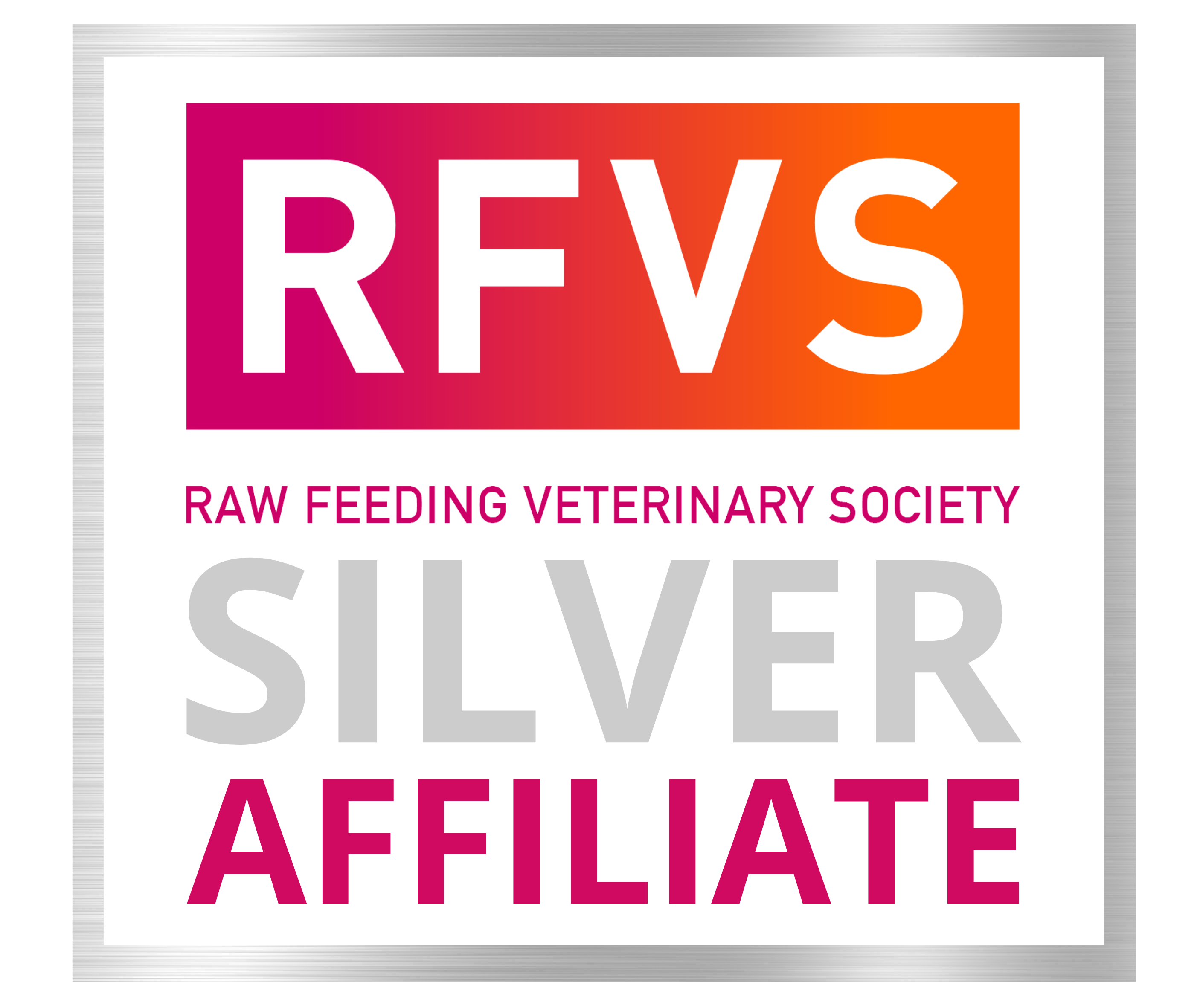Raw Feeding Cats – The Essentials of Feline Nutrition
Cats are obligate carnivores, biologically designed to thrive on a diet rich in animal proteins, primarily from small prey animals. Their nutritional needs are met through the consumption of raw meaty bones, which provide essential nutrients in their natural forms. Unlike omnivores, cats cannot utilize plant proteins to fulfill their dietary requirements.
The Natural Diet: High Protein, Low Carbohydrates
In the wild, a cat's diet consists of high-quality protein, moderate fat, and minimal carbohydrates. However, many commercial cat foods, especially dry kibble, contain significant amounts of carbohydrates from grains like corn, wheat, and soy. These ingredients are often used because they are inexpensive, but they do not align with a cat's natural dietary needs. The addition of synthetic nutrients to these diets aims to compensate for the lack of natural nutrients but may not fully replicate the nutritional profile of a raw diet.
Hydration: Cats and Water Intake
Cats have a low thirst drive and are adapted to obtain most of their hydration from their food. A diet consisting solely of dry food can lead to chronic dehydration, as cats may not drink sufficient water to compensate for the lack of moisture in their food. This dehydration can contribute to various health issues, including urinary tract diseases. Feeding a raw diet, which contains approximately 70-75% moisture, helps maintain proper hydration levels.
Health Implications of Inappropriate Diets
Feeding cats a diet high in carbohydrates and low in moisture can lead to several health problems:
-
Diabetes Mellitus: Excessive carbohydrate intake can cause chronic high blood sugar, leading to pancreatic stress and eventual insulin resistance.
-
Feline Lower Urinary Tract Disease (FLUTD): Chronic dehydration can lead to urinary tract issues, including bladder stones and cystitis.
-
Inflammatory Bowel Disease (IBD): Regular vomiting, diarrhea, and abdominal discomfort may indicate IBD, which can be managed with a species-appropriate diet.
-
Obesity: Cats fed high-carbohydrate diets are at risk of obesity, which can predispose them to diabetes and other health issues.
-
Dental Disease: Dry food often lacks the ability to clean teeth effectively, leading to dental problems.
Scientific Insights
Research indicates that raw meat-based diets can alter the gastrointestinal microbiota of cats, increasing the relative abundances of bacteria associated with protein and fat utilization. This shift may contribute to improved intestinal health and overall well-being.
Conclusion
Feeding cats a diet that closely resembles their natural, raw prey-based diet can lead to improved health outcomes, including better hydration, weight management, and dental health. However, it's vital to ensure that the raw diet is nutritionally balanced and safe to prevent potential health risks. Consulting with a veterinary nutritionist is recommended to create a diet plan tailored to your cat's specific needs.
About Raw Essentials
Raw Essentials is a New Zealand-owned company that has been improving the lives of cats and dogs in Aotearoa for 18 years. Founded by a qualified vet, we are recognized as raw feeding experts who employ an evidence-based scientific approach to feeding NZ-grown, traceable, unprocessed, 100% naturally raw food. Our well-trained, knowledgeable team of nutrition experts operates across 17 stores nationwide, offering wildly good pet-specific diets and feeding programs. Our in-house veterinary advice is also available online and in-store. We advocate for pet empathy, helping build and maintain lifelong good pet health through feeding unprocessed, 100% naturally raw food, full of the essentials every pet deserves. Raw means Raw at Raw Essentials.
References
-
Butowski, C. F., et al. (2022). The effects of raw-meat diets on the gastrointestinal microbiota of the cat and dog: a review. PubMed.
-
Freeman, L. M., et al. (2013). Current knowledge about the risks and benefits of raw meat-based diets for dogs and cats. PubMed.
-
Schlesinger, D. P., & Joffe, D. J. (2011). Raw food diets in companion animals: A critical review. PubMed.
-
Główny, D., et al. (2024). Raw diets for dogs and cats: Potential health benefits and threats. PubMed.

